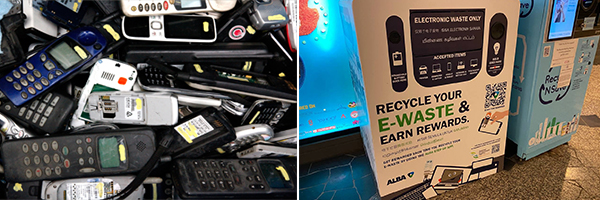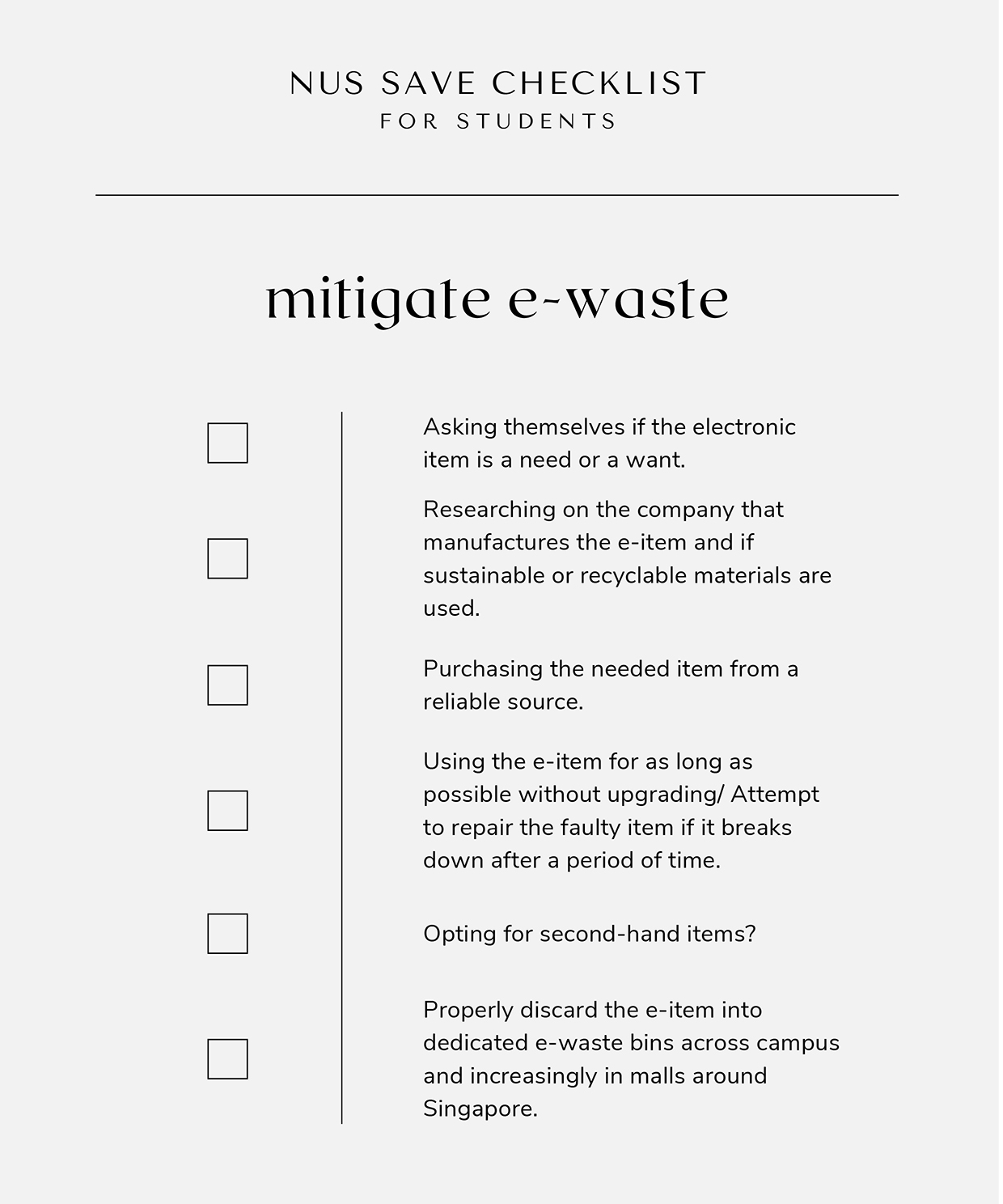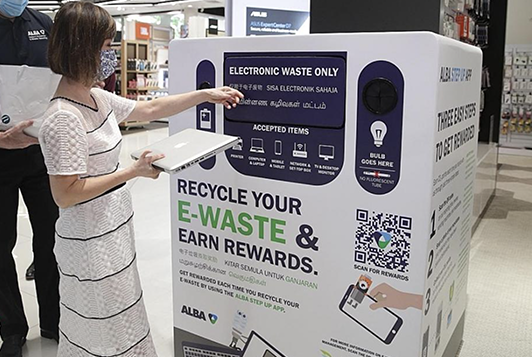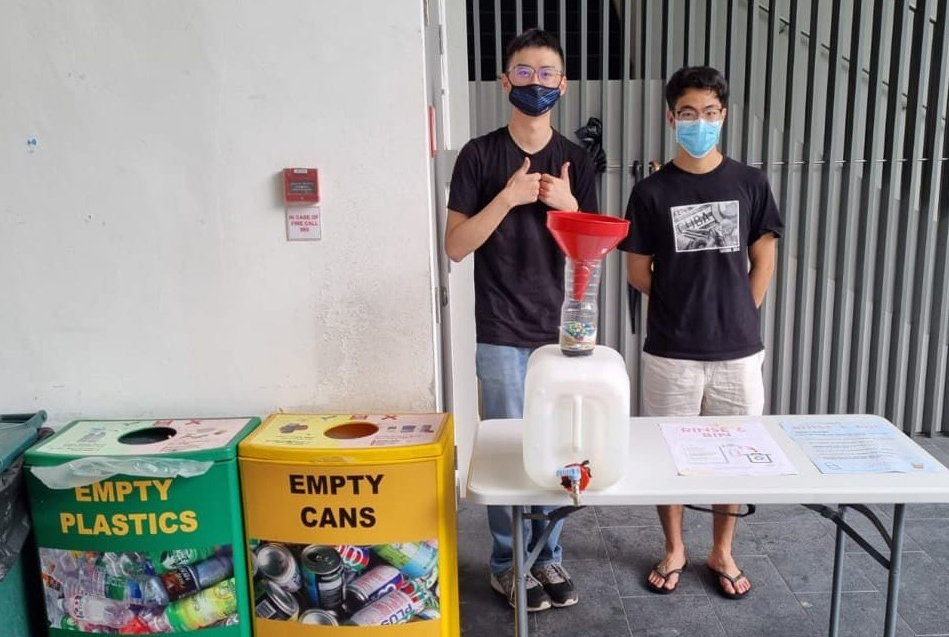How you can help contribute "Towards a zero-waste NUS"?
Singapore, alongside Hong Kong, is one of the top producers of e-waste in Asia and e-waste recycling firm Virogreen recorded a jump in the number of electronic devices it collected in Singapore from about 86 tonnes in 2016 to about 360 tonnes in 2017.*

Right: E-waste bin at Stephen Riady Centre, Level 1, UTown. One of three locations on Kent Ridge Campus. Photo: Ting Wai Kit, Co-President NUS SAVE
What can we do to advance Singapore’s sustainable development? The Office of Student Affairs (OSA) asks Co-Presidents of NUS SAVE on e-waste and their efforts in view of International e-Waste Day on 14 October 2021.
OSA: What are NUS students’ lifestyle and attitude towards e-waste?
Ting Wai Kit (TWK), Co-President, NUS SAVE: If one of my electronic device spoils, I would open my Lazada mobile application to order another one since it’s cheap to replace nowadays. I would not have thought of repairing or looking for a dedicated e-waste bin to discard them in. If all students' lifestyles and attitudes towards e-waste are like mine, the world is in trouble. That’s why we urgently need for education on e-waste.
Melina Thebe (MT), Co-President, NUS SAVE: As students, it is also often quite troublesome to recycle e-waste as they are only collected in certain locations and even in NUS, the e-waste bins were only recently introduced in July this year. Thus, I feel that we do not really give as much thought to e-waste as compared to other environmental problems.
OSA: How has COVID-19 contributed to the consumption of more electronic waste?
TWK: The Coronavirus outbreak has had a perceptible effect on our use of electronics and digital solutions, with people relying on e-products to keep them connected to school, work colleagues and in their family and social life. This would result in an overall increase in the consumption of e-products and hence e-waste.
OSA: What is being done about it?
TWK: NUS SAVE invited Repair Kopitiam for a sharing session on 16 September 2021 where students learnt more about the prevalent “Buy and Throwaway” culture in our society and what they can do about it as an individual.
Apart from that, NUS SAVE aims to create a platform for students to recycle and purchase loved items from others to upcycle potential waste on campus. To do so, we are organising a Green Bazaar on 26-28 January 2022 at UTown Plaza to sell and allow people to swap and donate items like clothes, books, e-waste and more.
International E-Waste Day is an opportunity for everyone to recalibrate our choices. You can look to reducing your consumption. Repair Kopitiam is an outlet for you to repair your items before throwing them away at impulse to reduce wastage. On unsalvageable items, recycling at one of the e-waste bins in NUS is a good way to go.
There are three locations at Kent Ridge Campus:
✔️Central Library Forum, Level 1
✔️Outside LT27 – LT29, Level 1
✔️University Town, Stephen Riady Centre, Level 1 (next to WaaCow restaurant)
You can play a part by checking off these action items to mitigate e-waste and help contribute to “Towards a Zero-Waste NUS” Action Plan 2030.

* DBS, “A toxic trash pile grows when gadgets become waste — in a year or less”, Cynthia Choo, 3 September 2019, https://www.dbs.com/livemore/tech/trash-talk-a-toxic-trash-pile-grows-when-gadgets-become-waste-in-a-year-or-less.html
Share:
Contributor
Shanice Poh, Year 2 NUS Business School




